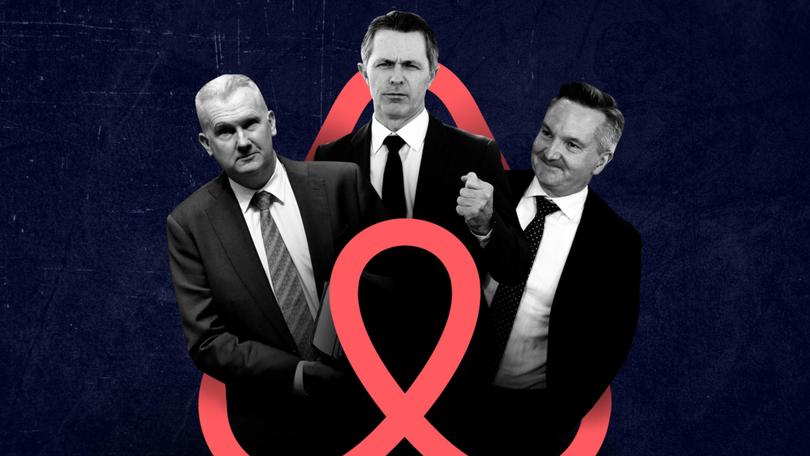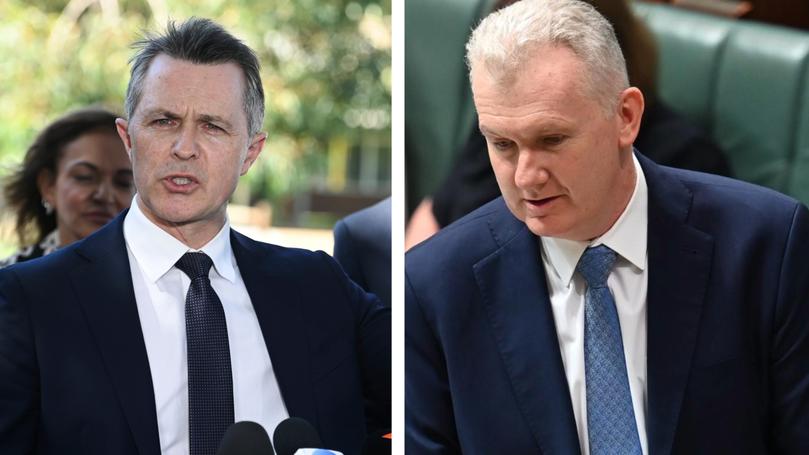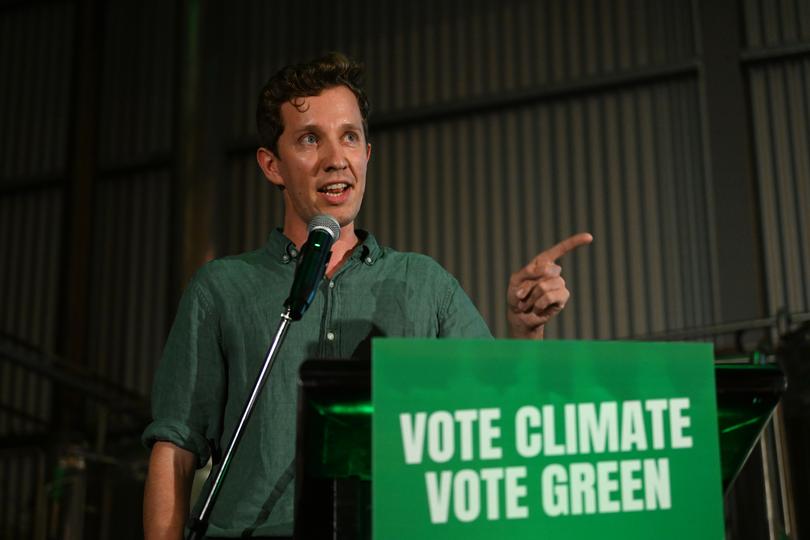Jason Clare and Tony Burke among Albanese’s ministers raking it in with Airbnb properties amid rental crisis
Senior Albanese government ministers are raking in hundreds of dollars a night renting out their holiday homes while Australians continue to endure a dual cost of living and housing crisis.

Senior Albanese government ministers are raking in hundreds of dollars a night renting out their holiday homes as Australians confront a dual cost-of-living and housing crisis.
Climate Change and Energy Minister Chris Bowen, Employment and Workplace Relations Minister Tony Burke and Education Minister Jason Clare — who combined own six investment properties — each have listings on the online short stay platform Airbnb.
Mr Clare’s “countryside luxe” cottage in a NSW southern highlands town grappling with a housing shortage is available for up to $500 a night. Mr Burke rents out a rustic rural spread in Jackeys Marsh, Tasmania, for $200 a night, and Mr Bowen’s luxury home at Bawley Point on the NSW south coast costs $680 a night.
Sign up to The Nightly's newsletters.
Get the first look at the digital newspaper, curated daily stories and breaking headlines delivered to your inbox.
By continuing you agree to our Terms and Privacy Policy.The US-based platform Airbnb — one of several which are used to market the two per cent of Australia’s housing market used for short-term rentals — has been criticised for diverting properties from those seeking housing in capital cities and regional areas.
While they bring an economic boost through tourism, short-term rentals have also been criticised for changing the nature of neighbourhoods and delivering hefty tax breaks to their owners.
Almost two-thirds of federal politicians own two or more properties, according to analysis of the publicly accessible register of interests for members of parliament.
Some 88 members of the House of Representatives own investment properties. When asked if these were short term rentals, several MPs declined to answer, while others said they were either rented to long-term tenants or in the case of holiday homes were not rented out.

The properties owned by the three Albanese Cabinet ministers were identified through property title searches. None of the ministers wished to comment for this article.
The Nightly conducted the property searches based off of declarations made by every MP on how many properties they own, and which suburb they were located.
Due to privacy laws in some states, The Nightly was unable to pinpoint other short-term rentals owned by federal politicians. Federal parliament’s biggest landholders include politicians from the major parties, including independents, Teals and Greens.
Prime Minister Anthony Albanese’s extensive property portfolio was targeted last month by Greens Housing spokesman Max Chandler-Mather who roasted him in Parliament over the $115,000 a year he makes renting his properties on top of his $560,000 salary as PM and asking why Australia has a “property investor as a prime minister” while the country is experiencing the “worst housing crisis we’ve seen in a generation”.

Labor backbencher Meryl Swanson is also among those using Airbnb to rent out their property, with her Nelson Bay apartment on the site.
The holding of Airbnbs by senior government figures drew criticism from housing advocates, including Maiy Azize, national spokesperson for the Everybody’s Home campaign to end homelessness.
“The sheer number of holiday homes and Airbnbs across Australia are a symptom of a housing system that’s unfair,” Aziz said.
“The wealthiest among us, like MPs, can now buy a holiday home, turn that holiday home into a business, and get tax handouts in the process.
“Short-stay hosts are more likely to benefit from loopholes than other investors. If they have an ad up online, they can claim deductions even when the home is empty.
“That means the rest are underwriting the cost of things like rates and interest repayments on someone’s holiday home. And when it comes to sell, their profit is made even bigger by generous tax discounts.
“It’s bad enough that property investors can claim tens of thousands of dollars in tax benefits. Short-stay hosts have even less of an excuse. They are not providing homes to renters. They are simply using taxpayer handouts to get more value out of their holiday homes.
“The Government needs to wind back tax handouts like negative gearing and the Capital Gains Tax discount. It should also look at taxing vacant homes. That is the best way to bring down housing costs and make sure that housing is used for homes.”
Short term rentals comprise 1-2 per cent of Australia’s housing market, according to recent data in a report commissioned by Airbnb from Urbis.
But while that single-digit figure may appear low, it actually refelcted a large pool of rental stock, according to Sydney University Professor Nicole Gurran.
“In the best possible year and certainly the Commonwealth’s biggest aspiration is that we deliver two per cent as new builds in the next 12 months,” said Prof Gurran, a professor of urban and regional planning.
“We don’t have data on what proportion was always used as short term rentals before the arrival of platforms such as Airbnb but we can be pretty sure we were not doing that amount in the capital cities.
“The other thing to think about with that data is that two per cent of the whole housing stock is a significant proportion when you compare it the rental stock which is about 25 per cent or up to a third.
“It’s important that while we are concerned about housing supply we can’t afford not to look at STR (short-term rentals) and their impact but it’s also really important not to overstate that impact as opposed to other things that are going on.
“We know the best way to address the rental crisis is to properly fund social and affordable housing.
“At the moment we are nowhere near that and we are an outlier internationally in terms of the very small proportion that are targeted.
“In a year less than 2 per of those new homes are social and affordable and in the UK that’s up to 25 per cent.”
